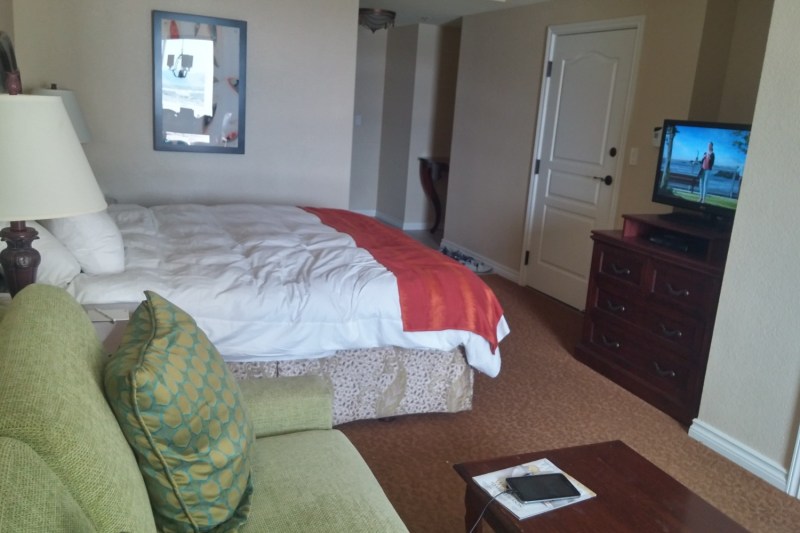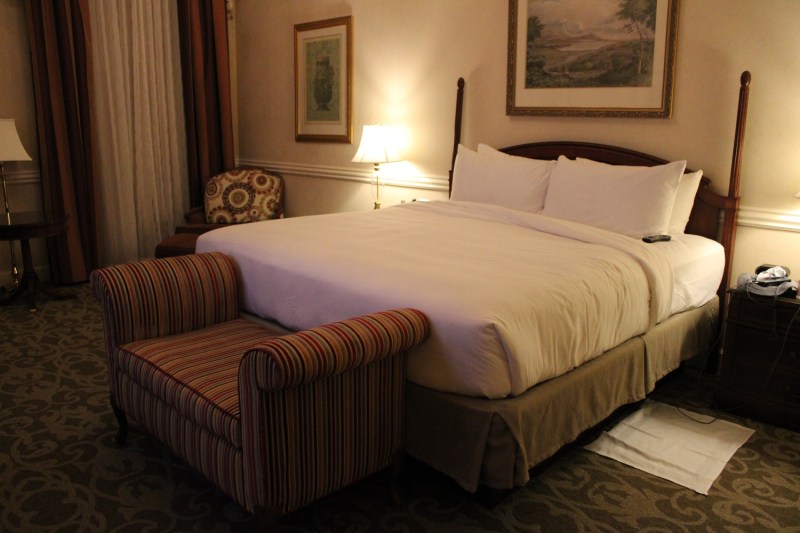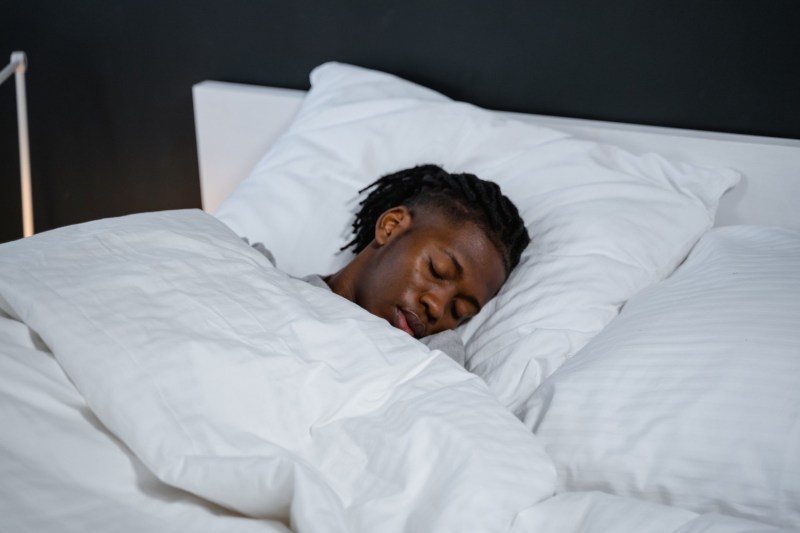Sometimes, it even happens to the best of us: We somehow end up sleeping with the TV on, and we wake up way too early in the morning wondering what happened. As innocuous as it may seem, if you sleep with the TV on, it can cause more serious problems if it becomes a recurring habit. If this habit drags on for many more nights, you may run into even worse consequences in the days and nights ahead.
Why is it such a problem to fall asleep with the TV on, and what can we do to develop better habits? Keep reading, as we reach into the screen to figure out what the heck is going on… And we finally find the remote control we need to turn off the noise and get a good night’s sleep for a change.
Why Is Sleeping with the TV on So Problematic?

According to studies that were published in the Family and Community Health and Sleep Health medical journals, nighttime TV use in the bedroom can harm children’s ability to sleep, and excess TV watching in adulthood can continue to harm one’s ability to sleep. While the occasional weekend Netflix or Hulu binge session probably won’t shave years off your life, we have growing scientific evidence showing how long TV bedroom binge sessions every night may cause lasting damage as you struggle to fall asleep and stay asleep.
Late-night TV viewing and continuing exposure to synthetic light can disrupt your circadian rhythm and melatonin levels, as the experts at the National Sleep Foundation point out. Regarding melatonin’s role in sleep, “Your body produces melatonin naturally. It doesn’t make you sleep, but as melatonin levels rise in the evening it puts you into a state of quiet wakefulness that helps promote sleep,” explains Dr. Luis F. Buenaver, Ph.D., C.B.S.M., in Johns Hopkins University Hospital’s primer on melatonin and sleep.
While melatonin supplements and melatonin-high foods are available, you may cancel out whatever benefits they provide if you maintain high exposure every night to the synthetic blue light that TVs and other electronic devices emit.
How Do We Fix This? What Should We Do Instead?

Lack of sufficient sleep can lead to terrible consequences like fatigue, reduced productivity, and impaired cognitive skills, the National Institutes of Health (NIH) has noted evidence suggesting that sustained disruptions to our circadian rhythms may lead to obesity, depression, seasonal affective disorder, and diabetes, and a more recent study from Northwestern University’s Dr. Phyllis Zee suggests that even a moderate amount of light during bedtime can harm our cardiovascular and metabolic health by way of reduced sleep.
We’ve detailed on these pages – more specifically, in our eight tips for better sleep and our primer on how to make your own sleep sanctuary – some simple advice on how to get better sleep. In addition, top medical experts like the Cleveland Clinic’s Dr. Reena Mehra and Johns Hopkins’ Dr. Luis Buenaver, Dr. Rachel Salas, and Dr. Charlene Gamaldo have given similar advice on how to improve your bedroom’s environment to make it more conducive to better sleep.
First and foremost, drop the habits that lead to you sleeping with the TV on. Turn off the TV at least one hour before you turn in for sleepy-time. Power down all notebook computers, tablets, smartphones, and other internet-enabled devices with blue light-emitting screens, and put them away at least one hour before bedtime. If the mere presence of these devices in your bedroom provides too much temptation to remain very online very late into the night, then try removing them from your bedroom entirely.
In Conclusion, Let’s Work on Building Better Sleep Habits

Instead of cluttering your bedroom with sources of synthetic light that can keep you up at night, try limiting the amount of light that pours into your bedroom when it’s bedtime. If your neighborhood tends to stay bright outside at night, consider installing blackout drapes and/or wearing a sleep mask to prevent the outside lights from keeping you awake. At first, this may seem difficult. But with proper practice and some necessary self-care, you can stop sleeping with the TV on and start getting better sleep every night.
If you need more help with your sleep, check out our conversation with pioneering sleep scientist Dr. Conor Heneghan on how to sleep better, our picks for the best mattress toppers for extra comfort, our list of the seven best pillows for neck pain, and our complete guide to rest and recovery. Good night, and good luck in getting better sleep.
Editors' Recommendations
- Sling TV packages: Here’s how much the service costs
- What is the best mattress thickness for exceptional sleep?
- How to stream the best Pedro Pascal movies and TV shows
- The best Christmas TV episodes of all time
- This simple chart shows you how to choose the right size TV for your living room




